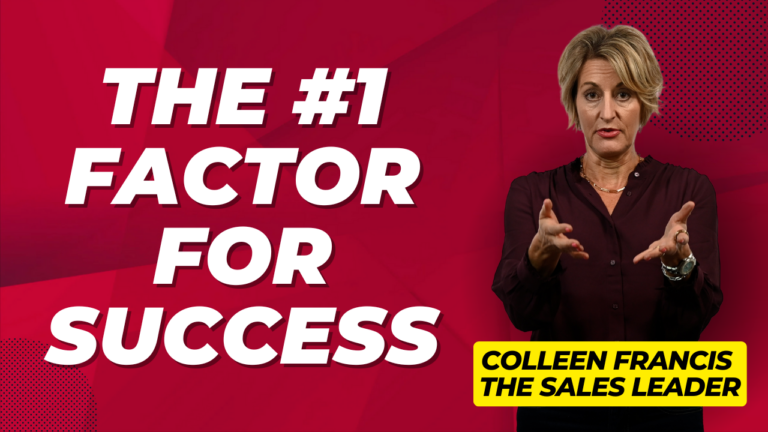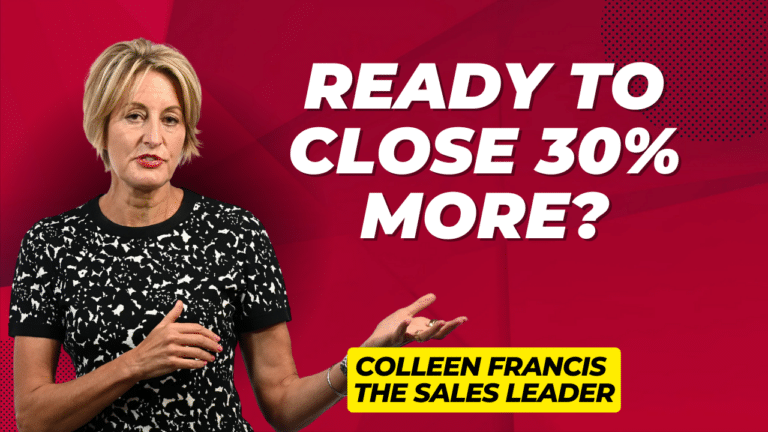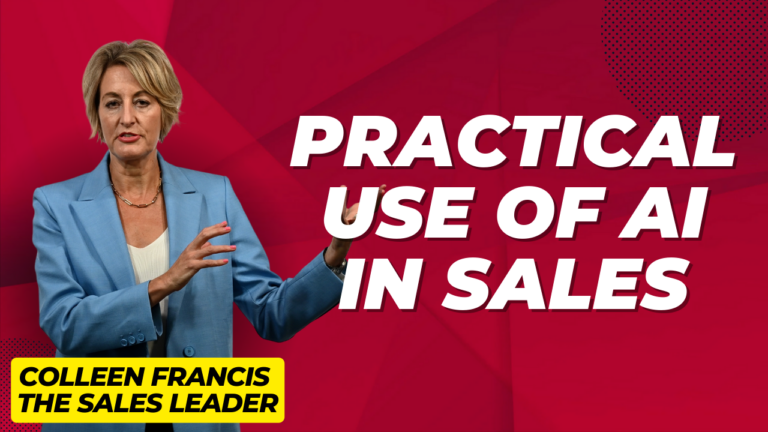How do I help my sales team sell more and be more successful? It’s a question that’s never far from the thoughts of many managers and executives these days.
Yes, there are a host of proven lead generation, prospecting and follow-up techniques that can make a real difference in your organization—and I talk about these often in my sales training sessions and webinars.
That’s only part of your solution though. In fact, that’s the second part. The first part of the equation involves personalizing your message, thinking smart and going beyond trust—creating winning conditions that you can later capitalize on.
Thinking personal.
You can’t sell very well to people who either don’t remember you, or can’t remember why they bought from you. Today, all selling is personal. Even in enterprise situations.
To be effective at being personal, however, you have to have to be ready to scale some walls. It’s a busy, noisy world out there, and odds are good that your customers filter out as much of it as they can. Who can blame them, given all the impersonal messages and wooden pitches that inundate inboxes everywhere?
Being personal sells because it transcends the act of selling. It requires a regular, thoughtful investment of your time to do this properly. It also happens to be what will set you and your team apart from those who still treat selling purely in transactional terms.
Thinking smart.
To be effective at being personal, think smart. You have to provide something that people want and can find useful in their own work. It can be a highlighted extract from a brand-new report, new research on market behavior, fresh data on a subject that matters to your audience. It can be a link posted on Google+ to a brand-new blog post, or a tweet. Or it can be a free webinar or podcast on a subject that provides a solution to a problem they are struggling with.
Just make sure that there’s substance to it. You are the subject authority.
No audience has to look hard to find run-of-the-mill tips or fact-free opinions. What they value is unique insight, validated by other subject matter authorities. Andrew Rashbass, Chief Executive of The Economist magazine (which has nearly doubled its profits since 2007) recently observed a growing phenomenon in the marketplace, which he calls “the mega-trend of mass intelligence.” People, he says, are “smarting up” rather than “dumbing down.”
That trend should be on your mind and that of every member of your sales team as you brainstorm for ways that you can provide better, more personalized value to your customers and prospects. Companies want to do business with thought leaders and industry experts—not sales people. Now is the time to start creating high-value content that sets you apart from all the other vendors.
Marketing consultant Simon Sinek argues in his book, Start With Why: How Great Leaders Inspire Everyone to Take Action, that “people don’t buy what you do, they buy why you do it.” When you take the time to be an authority on something and share it with others, you’re making a powerful statement about why you are in business. Work hard to show that what matters to you is also what matters to your audience.
Beyond trust.
For the last several years, there has been much talk about the need to forge trust with your customers as part of winning more sales.
Trust isn’t enough.
In fact, trust is an outcome. You can’t buy it. You can’t demand it. You only can earn it. Therefore, look carefully at the ways in which you go about earning that trust. That’s where people are paying attention and forming opinions.
What I see in the marketplace today—backed by the winning habits of the top salespeople across the full range of industries—is that people have an unquenchable thirst for knowledge. They are looking to work with those who are experts in their subject area and who are prepared to share what they know. What you have to sell to them—while important—is secondary.
An opportunity of a lifetime.
Being in sales today is an opportunity of a lifetime. Don’t let anyone tell you otherwise with their gloomy forecasts on what they call a bad economy, which is just a form of shorthand for making excuses for failure. There is a $61 trillion dollar global economy out there, populated with more people than ever who are in a position to buy your products, services and ideas.
Many old barriers to entering the marketplace don’t matter anymore (e.g., distance to market). New barriers, such as attracting and sustaining your audience’s attention, are entirely solvable.
The question you and your sales team need to ask yourself is why are you in business? Where does your passion live? How can you showcase that passion and the knowledge that comes with it and share it with your audience? Answer these questions, coupled with the time-honored, field-tested methods that we talk about so often at Engage to immediately improve your sales results, and your team will be hitting and surpassing sales targets like never before.



